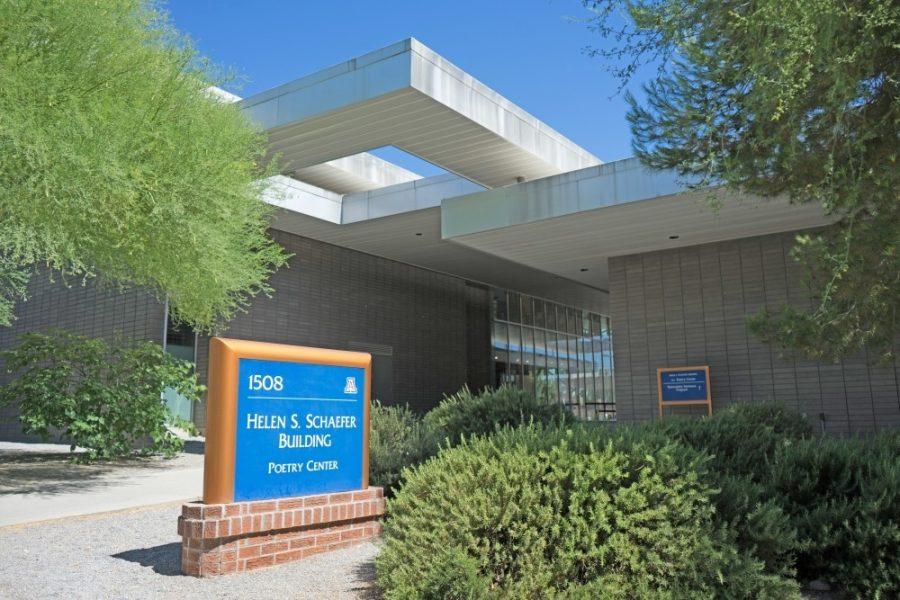Words of Wisdom, a community event at which LGBTQ senior poets share their work, returned to the University of Arizona Poetry Center on Saturday, October 14. The poetry reading showcased the voices of longtime members of the LGBTQ community the week of National Coming Out Day.
Southern Arizona Senior Pride, a volunteer organization dedicated to supporting senior members of the LGBTQ community, helped sponsor the event with the aid of the Poetry Center.
“I thought it was a fantastic opportunity to share my poetry and to stand up as an LGBT poet,” said Joy Valerius, a participating poet.
Curt Stubbs, a docent at the Poetry Center, organized the event, which is now in its third year.
“I was looking for a forum to read my own poems,” Stubbs said.
Initially, Stubbs advertised through a local paper in order to find poets willing to read their work. This year, the number of poets who signed up to perform was large enough for Stubbs to hand-select who would speak.
RELATED: Pride in the Park celebrates LGBT community
Ten LGBTQ senior citizens from the Tucson area, including Stubbs, shared their poetry at the reading. In addition, TC Tolbert, the poet laureate of Tucson and a transgender man, opened the event.
Tolbert, dubbed an honorary “junior senior” by attendees, read a series of epistolary poems that he wrote to the women that he grew-up with, entitled “Dear Melissa.” The poems explored the different relationships that everyone has with the various past versions of themselves.
Poetry also provided a way for Tolbert and other members of the LGBTQ community to look toward to their futures. “I think [poetry] is … this way of imagining what is possible for [LGBTQ people], imagining the lives that we can lead, the love that we can experiences,” Tolbert said. He added that it was “also a celebration of all the parts of our lives.”
Some poets shared works touching on LGBTQ issues and ordeals. But many others shared poems inspired by other topics. There were poems about racism, music festivals, schoolyard fights, sex, the absence of sex, war and love without the need for qualifiers.
“Poetry says things that other forms of writing can’t say,” Stubbs said. “Just the construction of poetry is conducive to giving you a new perspective on things.”
During the event, SASP surprised Stubbs by naming him the poet laureate of their organization, to which he expressed much gratitude.
RELATED: UA Poetry Center coalition recieves $200,000 grant to further mission
The sense of community at the event was palpable, with poets often pausing to acknowledge friends in the audience. Guests were also welcome to enjoy free refreshments provided by community members.
The poets weathered microphone troubles, interfering breezes and one cat’s attempt to violently edit his owner’s manuscript, as well as lifetimes of hardships, to share their works.
“Since our history as the LGBT community has been so silenced, I think it’s an important venue for letting our voices be heard,” Valerius said.
The event broke down stereotypes commonly held, both about senior citizens and LGBTQ people, to do what poetry does best: celebrate the complexities of being human.
“My first poem was about being a girl in love with a girl, but I wrote the poem as if I was a guy,” Tolbert said. “So it was like the first time I realized in writing I could imagine a world in which I could live.”
Follow Vanessa Ontiveros on Twitter









